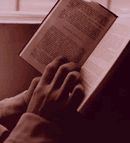 For some reason, I am still thinking about kindness; the result is this follow-up to last week’s column Kindness: A choice from the heart.
For some reason, I am still thinking about kindness; the result is this follow-up to last week’s column Kindness: A choice from the heart.
Practicing kindness requires an act of will and can be somewhat stressful to us as we face life realistically. We are encouraged by a spiritual leader named Paul to “be kind to one another,” but that often seems easier said than done. But Paul the Apostle often challenged us to do the uncomfortable and the difficult. It is legitimate to ask ourselves and to consult friends as to how far we go in practicing this trait after someone wrongs us.
Is kindness the first thought when we are betrayed? If we are honest the answer is NO. Recently I negotiated a contract for work done repairing and upgrading our deck. In discussing the job description and price, we came to an agreement both written and verbal. We paid a percentage of the cost up front to cover material for the job. It is now nearly two months since we made this agreement and the work has not even been started. My phone calls are not being returned. No excuse is being offered by the young man, nor has any effort been made to return the significant deposit.
As a person dedicated to being kind, and believing in the gospel of a second chance, what are my options? I am on the verge of getting an attorney and turning the situation over to the legal process. What is the “kind” course of action? Hey, where is the Apostle Paul and his wisdom when I need it? To be honest, I don’t have any kind feelings toward anyone who welshes on a deal. Even after this is settled in court, my confidence and trust in this person is shattered and broken. He will not be permitted on my property again.
Is this being kind? In some situations we encounter, it’s apparently appropriate for kindness to take a back seat and be at least temporarily suppressed.
Another thought on “kindness hurts:” our lives were recently enriched by the TV series The War by Ken Burns. I hope to receive the DVD of this series as a Christmas gift; that’s how much it impressed me in presenting the vicissitudes of WWII. A primary source for this series was the written record of how citizens of Laverne, Minnesota, responding to their sons experiencing the savagery of this war. Al McIntosh, editor of the local newspaper, wrote daily columns on how the families and soldiers suffered through the war years. For those interested in this era, his book, Selected Chaff, offers insight into the effects of was on homefront.
In a letter to the soldiers of Laverne serving overseas, McIntosh relates an event that is germane to this issue of kindness. He writes to these lonely men in their life-threatening situations.:
“You won’t see “Brownie” — one of Laverne’s canine characters — anymore. The dog that used to tide on the truck every fire had to be put out of his misery. And there were real tears on Snoose Stein’s face when he came back, carrying the shovel after digging Brownie’s grave.”
It required considerable kindness to put old Brownie down. For the faithful companion to continue to live with disabilities, pain and suffering, would have been inhumane, yet kindness is in this situation caused great grief. There are occasions when kindness has a price tag of emotional upheaval. Confining a mother or father to a nursing home will be a traumatic event, even though it’s often for their welfare and safety. Such a decision is compassionate and well-intended, but is often accompanied by heartache, despair and despondency.
Kindness hurts at times. It doesn’t always have the desired results even though well intentioned.
As my friend, John, said to me in his repair shop, “Be kind to each other.” I add to that, “even when it hurts.”



There is a saying I like, “Practice random acts of kindness, and senseless acts of beauty.”
It doesn’t suprise me at all that it’s creation is linked to a peace activist…
For a good example of this check out the movie Pay it forward. There is also a foundation dedicated to “Paying it forward“.
[youtube]CwHcS-XoYbc[/youtube]
I guess my point is that sometimes, to really mean something, kindess has to hurt.